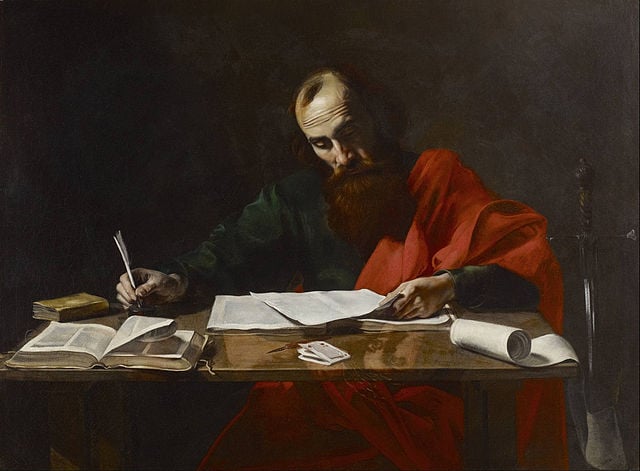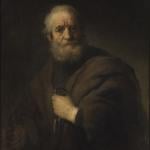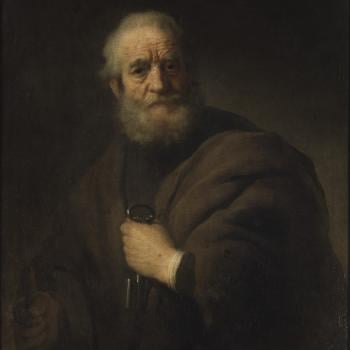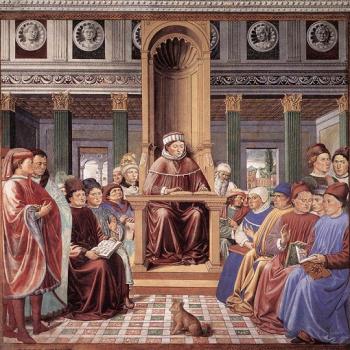Including Authority in the Church; Paul the “Lone Ranger”?; Apostolic Succession: Five Biblical Proofs

Norman L. Geisler (1932 – 2019) was an American evangelical Protestant theologian, philosopher, and apologist. He obtained an M.A. in theology from Wheaton College and a Ph.D. in philosophy from Loyola University, and made scholarly contributions to the subjects of classical Christian apologetics, systematic theology, philosophy of religion, Calvinism, Catholicism, biblical inerrancy, Bible difficulties, biblical miracles, the resurrection of Jesus, ethics, and other topics. He wrote or edited more 90 books and hundreds of articles.
Dr. Geisler was the Chairman of Philosophy of Religion at Trinity Evangelical Divinity School (1970–79) and Professor of Systematic Theology at Dallas Theological Seminary (1979–88) and a key figure in founding the Evangelical Philosophical Society. He also co-founded Southern Evangelical Seminary. He was known as an evangelical Thomist and considered himself a “moderate Calvinist”. He was not an anti-Catholic (i.e., he didn’t deny that Catholicism was fully a species of Christianity).
This is one of a series of comprehensive replies to his book, Roman Catholics and Evangelicals: Agreements and Differences (co-author, Ralph E. MacKenzie, graduate of Bethel Theological Seminary-West; Grand Rapids, Michigan: Baker Academic, 1995). It’s available online in a public domain version, which has no page numbers, so I will utilize page numbers from my paperback copy, for the sake of full reference. I consider it the best Protestant critique of Catholicism (especially in terms of biblical arguments) that I have ever found, from any time period. The arguments are, for the most part, impressively presented, thought-provoking, respectful, respectable, and worthy of serious consideration (which I’m now giving them).
I’ll be concentrating on the eight sections of Part Two: “Areas of Doctrinal Differences” (202 pages). These installments will be listed and linked on my Calvinism & General Protestantism web page, in section XVII: “Catholics and Protestants” (second from the end). Dr. Geisler’s and Ralph MacKenzie’s words will be in blue. My biblical citations are from RSV.
*****
Romans 1:5. Based on this text, Catholics claim that “The teaching office [of the Roman Catholic Church] demands from its incumbents the duty of obedience to the faith.” This is not, however, supported by this text which states: “Through him [Christ] we have received the grace of apostleship, to bring about the obedience of faith.” First, Paul is speaking here about his apostleship (v. 1), not that of Peter, to say nothing of Peter’s alleged successors, Roman Catholic popes. (p. 274)
Clearly, the “commands” to be “observed” were those of Christ (Matt. 28:20), not those of any alleged representative of Christ on earth (like Peter). (p. 281)
Dr. Geisler is getting way ahead of himself. Before we get to the papacy, we have to first discuss whether an authoritative, hierarchical, episcopal Church is taught in the Bible, and whether believers are obliged to obey its rules and injunctions. It’s clear in the Bible that both things are true. Paul’s statement is echoed elsewhere:
Acts 15:6, 23, 28 The apostles and the elders were gathered together to consider this matter. . . . [23] w. . . “The brethren, both the apostles and the elders, to the brethren who are of the Gentiles in Antioch and Syria and Cilicia, greeting. . . . [28] For it has seemed good to the Holy Spirit and to us to lay upon you no greater burden than these necessary things:
1 Corinthians 10:32 Give no offense to Jews or to Greeks or to the church of God,
1 Timothy 3:1-2 The saying is sure: If any one aspires to the office of bishop, he desires a noble task. [2] Now a bishop must be above reproach, the husband of one wife, temperate, sensible, dignified, hospitable, an apt teacher, (cf. Phil 1:1; Titus 1:7)
1 Timothy 3:15 . . . the household of God, which is the church of the living God, the pillar and bulwark of the truth.
1 Timothy 5:17 Let the elders who rule well be considered worthy of double honor, especially those who labor in preaching and teaching;
Titus 3:1 Remind them to be submissive to rulers and authorities, to be obedient, . . .
Hebrews 13:17 Obey your leaders and submit to them; for they are keeping watch over your souls, as men who will have to give account. Let them do this joyfully, and not sadly, for that would be of no advantage to you.
1 Peter 5:5 Likewise you that are younger be subject to the elders. . . .
It is also incorrect to regard St. Paul as some kind of spiritual “lone ranger,” on his own with no particular ecclesiastical allegiance (as evangelicals like Dr. Geisler tend to do), since he was commissioned by Jesus Himself as an apostle. In his very conversion experience, Jesus informed Paul that he would be told what to do (Acts 9:6; cf. 9:17). Ananias guided him at first. He went to see St. Peter in Jerusalem for fifteen days in order to be confirmed in his calling (Gal 1:18), and fourteen years later was commissioned by Peter, James, and John (Gal 2:1-2, 9). He was also sent out by the Church at Antioch (Acts 13:1-4), which was in contact with the Church at Jerusalem (Acts 11:19-27). Later on, Paul reported back to Antioch (Acts 14:26-28).
St. Paul seems to have been a lesser figure than Peter and even James at the council of Jerusalem (Acts 15). The Bible doesn’t record any of his words at the council. It simply states that he and Barnabas “declared all that God had done with them” (Acts 15:4) and that the other apostles and elders “listened” to them “as they related what signs and wonders God had done through them among the Gentiles” (15:12). Peter was the one who had a vision about clean foods — prior to this chapter — that led to him to give the decisive speech (15:7-11), after which the text — written by Luke, Paul’s traveling companions — states that “all the assembly kept silence” (15:12), whereas before Peter spoke there had been “much debate” (15:7). Then Paul and Timothy “went on their way through the cities, they delivered to them for observance the decisions which had been reached by the apostles and elders who were at Jerusalem” (Acts 16:4).
It’s true that Paul exercised much oversight over many local churches later on, but Jerusalem was the mother Church of all Christianity, and in its council, Peter was the key figure. We would or should expect as much, since, after all, Jesus built His church upon Peter (Mt 16:18-19). Peter had led the disciples, and he led the early Church at first, too. Thus, the first Church council affirms the papacy, since Peter presided over it as the main thinker and decision-maker. He acted as we would expect a pope to act.
Further, to be an apostle one had to be an eyewitness of the resurrected Christ (Acts 1:22; 1 Cor. 9:1; 15:5- 7), which clearly disqualifies anyone after the first century, and thus negates the claim that the teaching office of the Roman Catholic Church is somehow implied here. (p. 274)
Once these confirmed apostles died, however, there was no living apostolic authority. The only apostolic authority present today is that of the apostolic
writings (namely, the New Testament) that were confirmed by apostolic signs. (p. 275)
There is absolutely no proof that apostolic authority was passed on to anyone after the time of the apostles. (p. 293)
Catholics agree with Protestants that apostles ceased after the first century. But they passed their authority onto those who either already were or became bishops. We see this in the choosing of Matthias to replace Judas. Acts 1:20 affirms: “His [Judas’] office another take.” The Greek word there is episkope (“bishop”): which is why in KJV it reads, “his bishoprick let another take.” That’s apostolic succession.
Secondly, we also see it in the Jerusalem Council (Acts 15) where apostles and elders jointly exercised authority. Once the apostles died out the elders (bishops) would take over their authority.
Thirdly, we see Paul commissioning the elders of the Church of Ephesus to take over as the leaders after he is gone:
Acts 20:28 Take heed to yourselves and to all the flock, in which the Holy Spirit has made you overseers [Greek, episkopos = bishop], to care for the church of God which he obtained with the blood of his own Son.
As a fourth biblical argument, Paul and Barnabas “appointed elders . . . in every church” (Acts 14:23), then later we see Paul commissioning and delegating Titus to do exactly the same thing:
Titus 1:5 This is why I left you in Crete, that you might amend what was defective, and appoint elders in every town as I directed you,
The fifth argument is the combination of Paul’s first and second letters to Timothy, where he certainly seems — by many indications — to be passing on his office and responsibilities to Timothy.
This is apostolic succession: a thing Dr. Geisler and most Protestants curiously deny, even though it is explicit biblical teaching. Peter and James in Acts 15, Paul in Acts 20, and Titus in Titus 1:5 are all functioning as “super-bishops” who have authority over many local churches, not just one. Paul urges Titus to “teach what befits sound doctrine” (Titus 2:1) and “Declare these things; exhort and reprove with all authority. Let no one disregard you” (2:15).
Paul, Peter, James were apostles, but the elders at the Jerusalem Council and at Ephesus were not. They were bishops and most if not all had not met Jesus, either before or after His resurrection (nor had Titus or Timothy). If that’s not simultaneously hierarchy and apostolic succession, then no one has ever seen it. It’s as clear as a summer day at high noon with no clouds in the sky.











